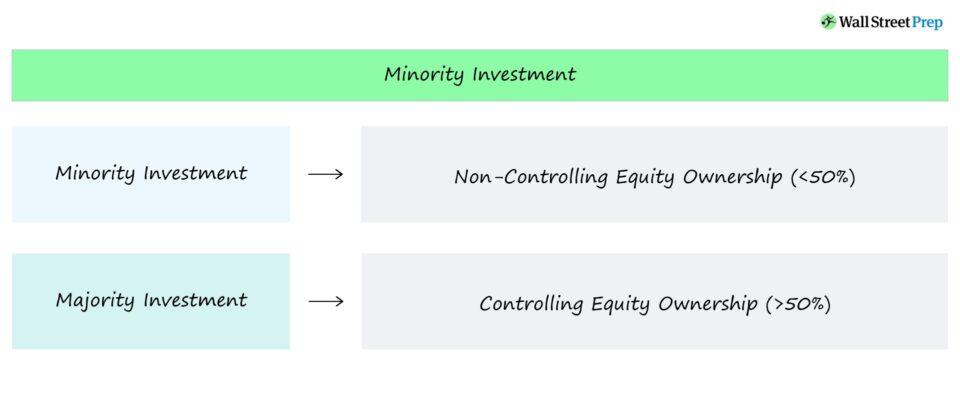
Minority Interest

What is the Definition of Minority Interest?
A minority interest is an investment structure, where the investor’s equity ownership is less than 50% post-investment.
In the private equity industry, firms specializing in minority investments obtain a non-controlling stake in a company’s equity in exchange for capital.
The objective of minority investments is to provide capital to a company already exhibiting significant growth and trending in an upward trajectory.
The two types of firms that most commonly engage in minority investments within the private markets are the following:
- Venture Capital (VC) → In venture capital, the investments are made into smaller-sized, high-growth companies attempting to disrupt industries (and thus, the risk is substantially greater).
- Growth Equity → In comparison, the funding provided by growth equity firms is intended to support the management team’s existing plans for growth, i.e. continue the positive momentum.
If an institutional firm makes a minority investment in a company’s equity, it owns a significant percentage of the total equity interest, yet its stake is non-controlling.
While there can be exceptions, such as with highly-regarded VC firms - most firms that make minority stake investments, especially those that invest in the later stages of a company’s lifecycle - tend not to be influential in the company’s decisions and strategies.
How Does Minority Interest Work?
Generally, minority investments consist of around 10% and 30% of the company’s total equity. In contrast, an investment structured as a majority stake implies the firm’s equity ownership exceeds 50%.
- Minority Interest → <50% Ownership
- Majority Interest → >50% Ownership
While the investments made by venture capital and growth equity firms are nearly always structured as minority investments, traditional private equity firms (LBOs) almost always make majority investments, barring unusual circumstances.
The trade-off here is that minority investors hold less influence over the company’s decisions and strategy, but controlling the company’s decisions is rarely the firm’s objective, anyway. Instead, the firm recognizes the company’s outlook is promising and seeks to participate in the upside potential (and is thus “along for the ride”), even if that means their investment strategy is relatively “hands-off”.
Link nội dung: https://pmil.edu.vn/minority-interest-la-gi-a46120.html